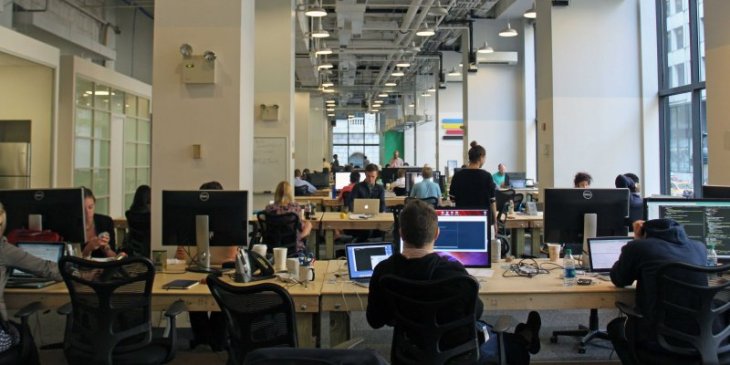Grand Central Tech is kicking off the fourth year of its startup accelerator.
As its name suggests, the organization is located near New York City’s Grand Central station. It’s not just an accelerator anymore — it also runs a coworking space, a “hub” for urban tech companies and is taking over the New York Venture Fellows program.
But Managing Director Matthew Harrigan said the accelerator is still “our beating heart,” with the other initiatives designed to support it and create “a vertically integrated community of startups” under one roof — for example, the coworking space was created primarily to house startups that have completed the yearlong accelerator program.
Harrigan also noted that unlike most accelerators, Grand Central doesn’t take equity in its startups, at least not initially. (It has invested in some participants after they’ve attracted institutional funding, and Harrigan said he’s planning to create “a more formal funding apparatus this year.”)
The program was launched in partnership with Milstein Properties, which owns the building and allows the accelerator startups to stay rent free. The companies only pay rent if, afterwards, they decide to move into the coworking space or another office in the building.
So Grand Central is meant to make money for Milstein, but Harrigan said the model gives him the freedom to look beyond financial returns and also think about a broader mission of helping the New York tech scene. He said that’s a big part of why he was able to recruit an initial class of startups where 50 percent of the founders were women, and 30 percent were people of color or veterans (with some overlap between those groups), a ratio that he’s maintained going into this new class.
Anyway, that’s the general catchup. Here are the 18 companies in the new class.
Alice — Alice makes it easier for employees pay for eligible expenses like transportation and childcare before taxes, effectively making their paychecks bigger without any extra work.
AlphaPoint — AlphaPoint builds financial software using blockchain technology.
Anvyl — Anvyl operates an online marketplace focused on the manufacturing supply chain.
Battersea Biotech — Battersea Biotech says it’s developing cell therapies to treat cancer.
Centivo — Centivo is a stealth healthcare company.
Eden Health — Eden Health is a healthcare startup combining private primary care, telemedicine and personalized insurance navigation.
Electronic Gaming Federation — The Electronic Gaming Federation aims to be the NCAA for e-sports.
Epibone — Epibone is working to create bone grafts from a patient’s own stem cells.
Experiment — Experiment is a crowdfunding platform for scientific research.
KidPass — KidPass has created a marketplace for parents to book kid-friendly activities like music classes and swimming lessons.
LOLI — LOLI manufactures customizable, organic personal care products.
Narmi — Narmi works with credit unions and other financial institutions to create web and mobile banking experiences.
Nautilus Labs — Nautilus Labs analyzes ocean shipping data to help businesses burn less fuel.
NewtonX — NewtonX is a marketplace connecting companies with experts who can provide live consultation.
pulseData — PulseData works with healthcare companies to identify patients who are at risk of future medical events and to entourage preventative actions.
Radish — Radish offers a mobile app where you can read bite-sized chunks of serialized fiction.
Scala Computing — Scala says it can deliver faster performance time for scientific and engineering applications by tailoring the computing environment for the application.
Uru — Uru finds surfaces in online videos where it can introduce logos and other content from sponsors.
